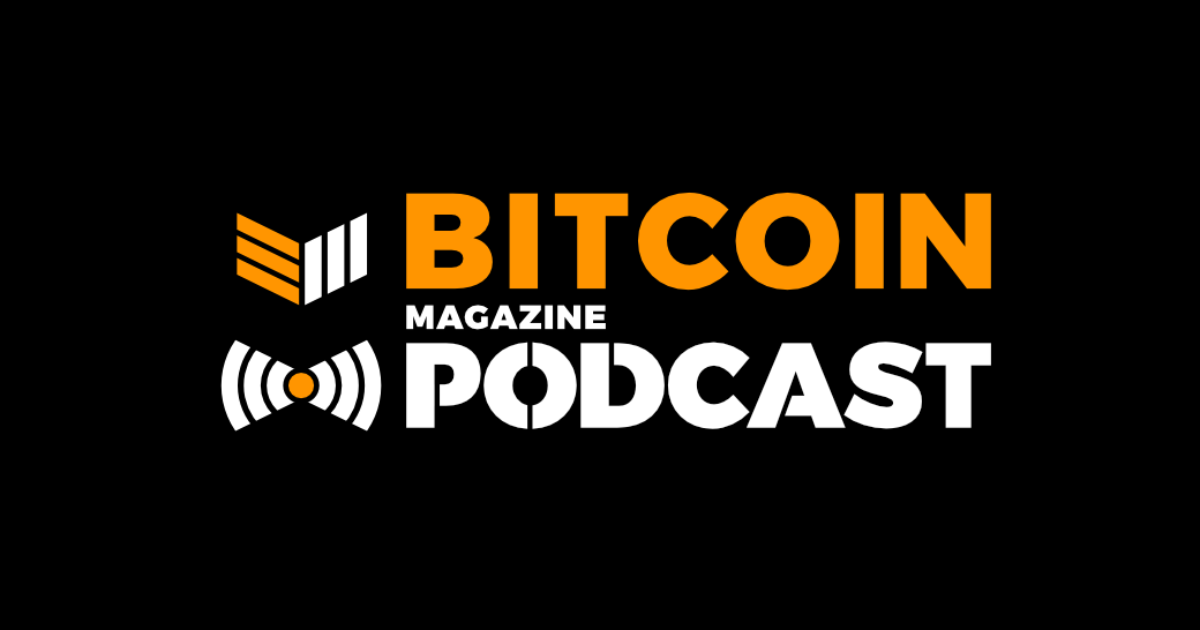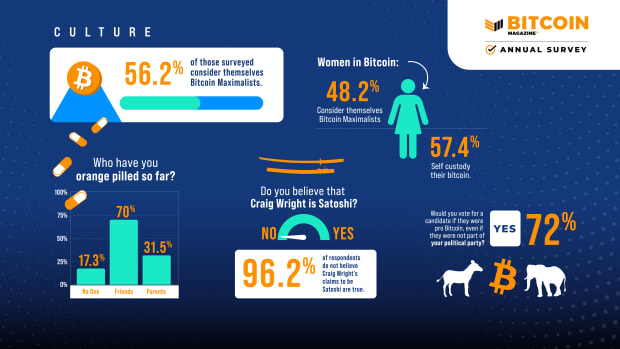The Great Plague Of Shitcoinery
And the inescapable ravage of modern seigniorage…

Originally, seigniorage, also spelled “seigneurage,” came from the Old French language, stemming from the right of the lord (seigneur) to mint money — profiting tremendously from money creation. It was a bygone prerogative of lords and the crown to extract a fee, the “brassage,” from the bullion brought to the mint to be coined or to be exchanged for coins that would be used for commerce. Individuals could bring their precious metals, usually silver and gold, and the crown’s mint would stamp a coin out of the metal to be accepted by merchants. This privilege was exclusively reserved for armed elites with legislative and executive powers.
Today, seigniorage is a common way for governments around the world to generate revenue without levying conventional taxes, which are less popular with their electorates. The modern lords of money printing are central banks working in tandem with commercial banks and governments issuing debt in a fractional reserve banking system. National fiat currencies, such as the U.S. dollar, euro or yen, are protected by legal tender laws, meaning they are recognized as an appropriate instrument to settle any monetary debt in some jurisdiction. It is also typically demanded that residents of the respective territories use these currencies to pay their taxes and trade in the country. Fiat currencies are only used because people have no other choices that are legally available. Under the fiat monetary system, the cost of currency issuance is close to zero, which is very profitable for the national issuers, as there is no longer any limit on the quantity of money that can be created, further shrinking the value of the existing currency in circulation, and annihilating the purchasing power of the currency holders — people like you and me.

Monopolies Vanish
Enter Bitcoin in 2008, revealed to the world as an open-source monetary mint divorced from any central control, in a dark corner of a cypherpunk internet forum. Just as Johannes Gutenberg pierced through the Church-controlled monopoly of written knowledge by inventing the printing press, Satoshi Nakamoto annihilated the State-controlled monopoly of money production. While Gutenberg’s invention eventually unlocked the Siècle des Lumières with an unfathomable amount of intellectual and cultural rebirth, Nakamoto’s invention may lead to even more radical societal upheaval.
Language and money are both essential ways by which humans collaborate peacefully, and ought to be free from central manipulation. As free markets are cleansed of artificial constraining forces, productive individuals and businesses may discover novel ways to bring about freedom, peace and prosperity to our fellow human beings, but that is outside the scope of this article.
With a reasonably short existence of only slightly over 10 years, Bitcoin is oftentimes characterized as old technology, which has already become obsolete. Many narratives were constructed around the internet’s native monetary protocol, in an effort to give legitimacy to alternative competing offerings, supplied by private companies and individuals. Are these projects genuinely competing with Bitcoin on the premise of their monetary superiority? What makes a money valuable, and can a money that is digital ever be trustworthy and reliable? Is the current paradigm around fiat currencies and alternative digital currencies, colloquially, “shitcoins,” that different? If bitcoin is only getting started in its monetization as a money for the people by the people, what are potential avenues of evolution in the next 10 to 20 years? Is shitcoinery a novel phenomenon, or is history simply repeating itself? Could shitcoinery be an overhyped technology bubble fed by greed, high time preference and the wrong technology heuristics?
In this brief essay, we will try to dissect the fundamentally flawed nature of alternative digital currencies, observe bitcoin as a pragmatic monetary evolution in contrast to shitcoinery’s “technology revolution” narratives and will attempt to demonstrate that Bitcoin is not only the only genuine possibility of divorcing money from the State, but that this paradigm shift is already quite advanced and inevitable.
An Old Demon
Still unbeknownst to most, alongside acting as a society-altering force for good, Bitcoin also revived a multi-millenium phenomenon on a global scale — the irresistible desire of a select few to control money production. As has history proved repeatedly in many distinct cultures and territories, controlling money production is extraordinarily profitable for the issuer. It is now easier than ever to become a money producer, and distribute it to many millions, if not billions, of people. To this day, more than 7,000 alternative digital currencies have been created (and counting), claiming their pseudo-monetary superiority to Bitcoin, or outright defrauding uneducated buyers with fake narratives.
Creating an alternative “cryptocurrency” today only takes a few minutes, which severely diminishes the barrier of entry for money producers. Armed with cunning marketing discourse, global distribution platforms on the internet and sometimes fraudulent artificial market manipulations, these “cryptocurrency issuers” can trick individuals, businesses and investors into believing their worthiness. Most of these projects, if not all, are misguided or directly coordinated scams on a global scale that is causing pain. The global market value of alternative cryptocurrencies equates to roughly $100 billion at the time of this writing, which represents a material malinvestment from developers, entrepreneurs, researchers and investors. Only one class of people benefit from shitcoinery in the long term: scammers leveraging information asymmetry in the marketplace.
Let’s be clear: Free market participants should be allowed to build businesses on whatever they please, as long as fraud is out of the equation, and consistently called out. Gambling within cryptocurrency exchanges, commonly referred to as “shitcoin casinos,” has been one of the most profitable business models around bitcoin, but was rarely qualified with the right amount of risk disclosures to market participants. Hiding information from consumers buying products and services is the real issue at heart. No amount of regulatory oversight will prevent consumers from being defrauded until people understand that the market for money is unique. The market for monies is the only market in the world that is a zero-sum game, and is simultaneously winner-take-all in terms of the eventual dominant form of money. Someone has to lose on one side of the trade, and because money makes up 50 percent of every single transaction globally, broken money markets can be a massive problem, which emanates severe negative consequences.
A Storm Of Confusion
Global disinformation, traditional market distress and financially-squeezed young generations crumbling under the burden of debt, are a favourable combination for the legitimization of shitcoinery. Fake information and outright lies about the promise behind alternative digital currencies are predominant, with gatekeepers manipulating the masses of retail consumers who are uneducated about financial services and monetary history. With a rising distrust in legacy financial markets, digital native generations — Gen Z and Millenials ,most notably — are turning a blind eye to legacy banking and want an out quickly. Under the habits of the Nanny State, entitled generations are removed from self-responsibility, thinking they can “make it big” overnight and turn out a quick profit to retire at 25. With fragile economic fundamentals, recent retail-led stock market maniac run ups have been another striking example of such phenomena.

Shitcoinery appeals to the inner, most nefarious human trait from which most are too proud to admit they suffer: greed. Greed can rot the mind and turn an honest person into a short-sighted, self-serving and mindless sheep, following the herd that is getting rich without them. Greed originates from our internal fear of facing an uncertain future, and shitcoinery is the glass from which one drinks the brew of aspirational eternity, promising a delusional abundance of wealth, a complete mirage.
Without diving into the technicalities of multiple implementations of shitcoins, it appears correct to postulate that most, if not all, of these cryptocurrencies, networks, protocols or outright Ponzi schemes are flawed by design. The fundamental axiom of trust lies in pure decentralization, which is an inescapable binary measure, and not a spectrum, as most shitcoiners would preach. A system is decentralized, or it is centralized. Centralization can oscillate on a spectrum with relative distribution, such as master-and-slave relationships in a computer network, but that is irrelevant to the subject at hand. Closing the loop, most developers working on shitcoins have immeasurable control over the monetary policy of their implementations, which requires trust, a requirement that was nullified by Bitcoin more than 10 years ago.
A Brutal Monetary Darwinism
Bitcoin was published as an attempt to construct a global monetary mint using the internet, cryptography, network computing and systems infrastructure. Nothing is new in Bitcoin, and most technologies used to build and run the protocol have been around for multiple decades. Everything was battle tested before. A common misconception is assuming that Bitcoin is the first attempt at creating digital cash. Many more attempts came to life in the past, and subsequently perished.
Whether it is E-Gold, Digicash, Liberty Reserve or B-Money, many implementations were developed over the years, each adding their contributions to the edifice that is Bitcoin. The fundamental difference between Bitcoin and shitcoins lies in its absolute decentralized nature, its immaculate conception and its mysterious inventor. Bitcoin has no head to chop, no management team to bully and no central point of failure. It adapts to its environment, as hostile as it can get, and gets more resilient with protocol updates that respect its uncompromising assurances. Bitcoin is akin to a living organism trying to survive the test of time — the purest form of universal anti-fragility.
“The genius of Bitcoin, in inventing a digital currency successful in the real world, is not in creating any new abstruse mathematics or cryptographic breakthrough, but in putting together decades-old pieces in a semi-novel but extremely unpopular way,” reads an influential 2011 essay on the technology. :Everything Bitcoin needed was available for many years, including the key ideas.”
Battles in the money market aren’t about incremental technology features, but fundamental monetary properties. Bitcoin is a pragmatic monetary evolution, which contrasts with shitcoin issuers misrepresenting a delusional technology revolution. Shallow narratives around “decentralizing the web” or “fixing supply chain traceability” are promoted as substitutes to failed attempts to legitimize some projects in the field, which were doomed to fail at birth. Often, unnecessary complexity is used to confuse people and leverage the greed factor we discussed previously.
Money as one type of good (different from consumer and capital goods) competes over soundness, which is a combination of objective properties that make a neutral, good, useful medium to be useable as money. The single best money is a good that is completely useless for any other thing, which has no intrinsic value, and that’s great. Besides the monetary premium it accrues from its monetization, people realize naturally that a monetary good is a trustworthy mechanism to store, exchange and measure value. The Austrian Economics school of thought would disagree with this premise, defending the argument behind the “Regression Theorem,” but that is a debate for another time.
Shitcoins promote “get rich quick schemes” with incredible returns and shallow narratives, by moving fast and breaking things, defending the unattainable morality that competition in free markets must exist to let participants freely choose what is best for them. Controversial in the field, this position should trivially be refuted by the simple axiom of truth: lies are fraud, fraud is theft and theft should not happen. Bitcoin appeals to individuals with low time preferences, which is to say, individuals who think long term and want to find safety in sats (1 BTC is divisible into 100,000,000 satoshis). Bitcoin isn’t a “get rich quick scheme” but a “don’t get poor slowly” one, acting as a weapon of defense against the world’s most singular evil: monetary inflation.
Think long term, choose Bitcoin and opt out. Be greedy, and find the evils of high time preference and degenerate gambling, which have been rotting the hearts, souls and minds of humans since the dawn of time.
In the end, there is no escaping it: Bitcoin is inevitable, and shitcoins will perish in a brutal monetary darwinism. Choose wisely.

The post The Great Plague Of Shitcoinery appeared first on Bitcoin Magazine.









